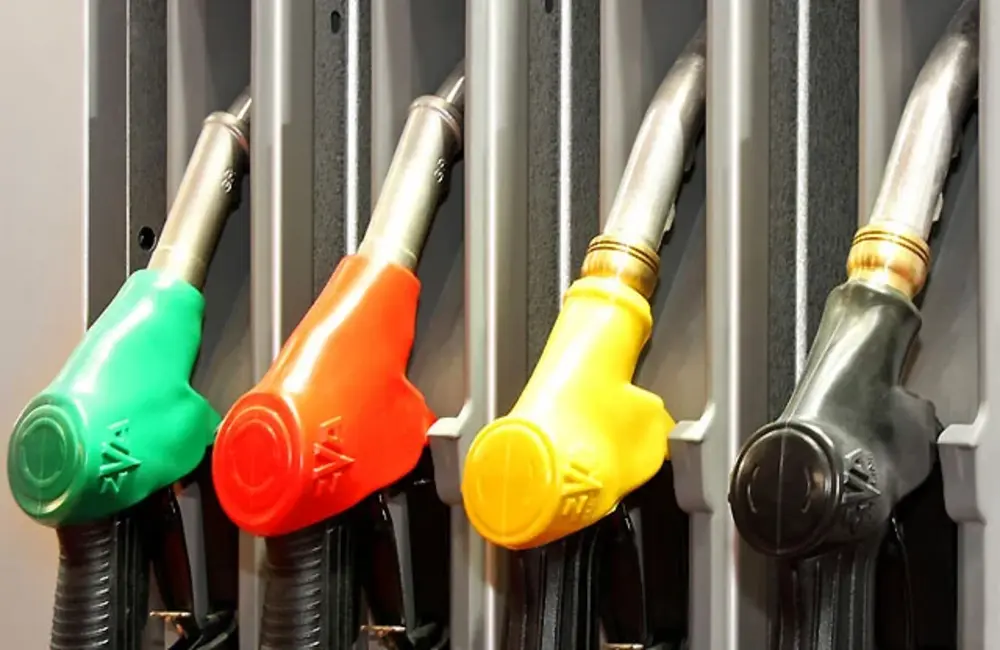US voters on Nov. 8 will determine party control of Congress, and, by extension, whether and to what extent new clean energy technologies or the country’s vast fossil fuel riches will dominate the legislative agenda for the coming two years.
Republicans hope they can flip both chambers to make their case for rebalancing the US energy portfolio, which they say should include a greater focus on increasing domestic oil and natural gas production. Democrats hope to expand their majorities in the House of Representatives and Senate to advance policies consistent with President Joe Biden’s aggressive climate goals.
Per simulations from FiveThirtyEight and The Economist, Democrats have a slight edge in leading the Senate. But they are on course to lose the House, albeit by a smaller margin than the red wave forecast a few months back.
Oil and gas production
Republican flip:
Expect a Republican Congress to turn its attention to producing more energy in America, a long-held Republican agenda to unleash American energy resources, with the more recent caveat of reducing emissions. While one-party rule by Democrats should check major legislative changes, one area to keep an eye on is incentives for green technologies that extend oil and gas production and leverage existing infrastructure. Antagonistic scrutiny of agencies might zero in on the proposed Environmental Protection Agency biofuel blending requirements and vehicle tailpipe emissions standards, while Interior could be in the hot seat over its progress on both offshore and onshore leasing.
Democratic gains:
A strong electoral showing by Democrats will embolden efforts to chip away at provisions friendly to offshore lease sales that made their way into the Inflation Reduction Act over the objections of progressives. House Natural Resources Committee Chairman Raúl Grijalva, Democrat-Arizona, has even proposed new legislation that would also seek another moratorium on federal oil and gas leasing.
Midstream natural gas
Republican flip:
If Republicans take the House or the Senate, vigorous oversight over Biden administration regulators of the gas sector becomes all but certain. Drifting to a more friction-filled approach to permitting midstream natural gas projects, the Federal Energy Regulatory Commission could be facing the hot seat. And a Republican Senate would have more say over who is nominated to fill any future vacancies at the commission. The Pipeline and Hazardous Materials Safety Administration can also expect renewed Capitol Hill scrutiny over the timing and scope of safety regulations to address corrosion and cracking. And Republicans also are expected to continue pushing for permitting reform legislation near the top of their agenda.
Democrat gains:
Some key decisions on permitting reforms relevant to gas and other energy projects hinge on whether a deal gets done ahead of Congress’s current session end on legislation championed by swing vote Senator Joe Manchin, Democrat from West Virginia. Wider margins for the Democrats could also cool Republican and industry hopes for more aggressive action to speed permits for gas and other fossil fuel infrastructure. Some Democrats argue that it’s a top priority to streamline the process to allow for the rapid clearance of clean energy proposals, but the party’s progressive wing has sounded the alarm over the prospect of stifling public involvement or adding burdens to environmental justice communities, or even cementing more fossil fuels.
Oil exports
Republican flip:
Republicans are eager to see the US once again a net energy exporter. With control of Congress, that party could pursue a policy push to increase domestic oil production, at least in the short term, so European and Asian allies could turn to the US rather than OPEC and Russia for crude. Legislation of this sort could receive backing from the White House and Democrats who want to see the geopolitical power that Russia and Saudi Arabia wield via their oil supplies limited.
Democrat gains:
The oil sector is also preparing for a potential ban on petroleum products exports if Democrats maintain the majority. The administration has bashed US refiners in recent years for exporting record amounts of gasoline and diesel while not holding enough regional inventories in the event of hurricanes or other supply shocks. Should prices at the pump climb again, Democrats could consider restricting exports to prioritize refilling domestic fuel inventories.
Power
Republican flip:
With a divided government, Republicans could try to deploy a host of tactics to prevent Biden's decarbonization priorities that disadvantage fossil fuels. Republicans could do any number of things to diminish the influence of those programs, however, including through the appropriations process, by shrinking the budget lines for programs they don’t like. House Energy and Commerce Committee ranking member Cathy McMorris Rodgers, Republican-Washington, has already pledged “vigorous oversight” over the Department of Energy’s loan programs that Democrats recently expanded.
Democrats pass a lot of clean energy policies, then focus on other priority areas for decarbonization:
With most major packages of legislation now in the rearview mirror, Democrats can focus on both clean technology supply chains (also popular) and on what ultimately matter for decarbonization (hint: it’s not just subsidies for solar, wind, and batteries). The party will also need to allocate funding to implement programs outlined in those recently passed climate and energy laws.
State climate targets
Republican gains:
The fate of several state climate programs could be at stake if Republicans take governors’ seats held by Democrats. And in Oregon, Gov. Kate Brown, a Democrat, established the state’s greenhouse gas cap-and-trade program by executive order. And if the Democratic candidate, Tina Kotek, loses, Republican Christine Drazan has promised to eliminate the cap-and-trade program on her first day in office.
Democrat gains:
Democratic governors in Michigan and Wisconsin may well need to hold onto their seats if they hope to defend their climate honors. In Wisconsin, Republican Tim Michels is challenging Democratic Gov. Tony Evers, who signed an executive order calling for 100% carbon-free electricity consumption by 2050. In Michigan, where Democratic Gov. Gretchen Whitmer signed an executive order seeking economy-wide carbon neutrality by 2050, she must survive a challenge from Republican Tudor Dixon. Both Republican candidates have embraced fossil fuel infrastructure.
Coal
Republican flip:
A Republican majority in one or both of Congress’s chambers could drive policies to extend the retirement of coal-fired power plants to curb home heating prices, or pursue the baseload fuel to shore up electricity reliability, but the House would be unlikely to bring such measures to Biden’s desk. According to the US Energy Information Administration, coal’s share of the US generation mix is also set to fall to a record low of 19.5% this year, under pressure from competition with gas and renewables.
Democrat gains:
New EPA rules to accelerate the energy transition by quickening retirements of coal plants in favor of gas plants and renewable energy facilities would run into less resistance if Democrats keep control of Congress. America’s Power, the coal industry group, predicted that one proposed regulation would close more than 10 percent of the existing fleet.
Nuclear
There’s been an increasing bipartisan push to aid domestic nuclear fuel industries and to keep financing advanced reactor prototypes, making the sector less vulnerable to shifting congressional control. These are bipartisan efforts to appropriate funding for domestic uranium mining, conversion, and enrichment, pending DOE support. Republicans also say they would seek to further streamline licensing activity for nuclear plants, including accelerating environmental reviews at the US Nuclear Regulatory Commission.
Metals
Metal of electoral strength:
Republican flip: Energy transition and electrification initiatives are dependent on metals such as copper, lithium, nickel, and cobalt. Republicans have increasingly demanded more-efficient permitting to permit mining developers to bring projects online more quickly and reliably. Such a shift in mine permitting would create a more robust domestic pipeline of requisite metals and reduce import dependence, a key issue as supplies for metals such as lithium will go into structural deficit over the next few years.
Democrats realize:
Democrats recognize that domestic mining is critical for a clean energy future and support mine permitting reform, but place a greater emphasis on environmental stewardship. The Biden administration has blockaded the development of major mining projects in response to threats of community opposition. The Democrat could exacerbate this trend by cutting domestic mined metal supplies. But a Democratic majority is likely to preserve Inflation Reduction Act budget allocations that, for example, fund tax credits for electric vehicles and renewable energy projects. This stability would be a positive for battery metal companies, which have made investment decisions based on expected federal support for these key end markets.
Petchems
Republican flip:
If one or both houses of Congress flop into the hands of a Democratic president this November, little in the way of legislation may be seen during the subsequent two years; thereby stifling incentive programs intended to boost demand for discretionary purchases, many of which rely heavily on chemical-based plastics for their manufacture.
Democrat gains:
Had Democrats managed to retain both chambers, economic incentive programs that might spur manufacturing or increase consumer demand would have had a much better shot at passage. The Inflation Reduction Act, for example, contained new or expanded tax credits connected to domestic manufacturing, much of which has to do with plastics. And Biden invoked the Defense Production Act in June to expedite domestic production of clean energy products, including solar panels and wind turbines made of all kinds of chemicals.




















